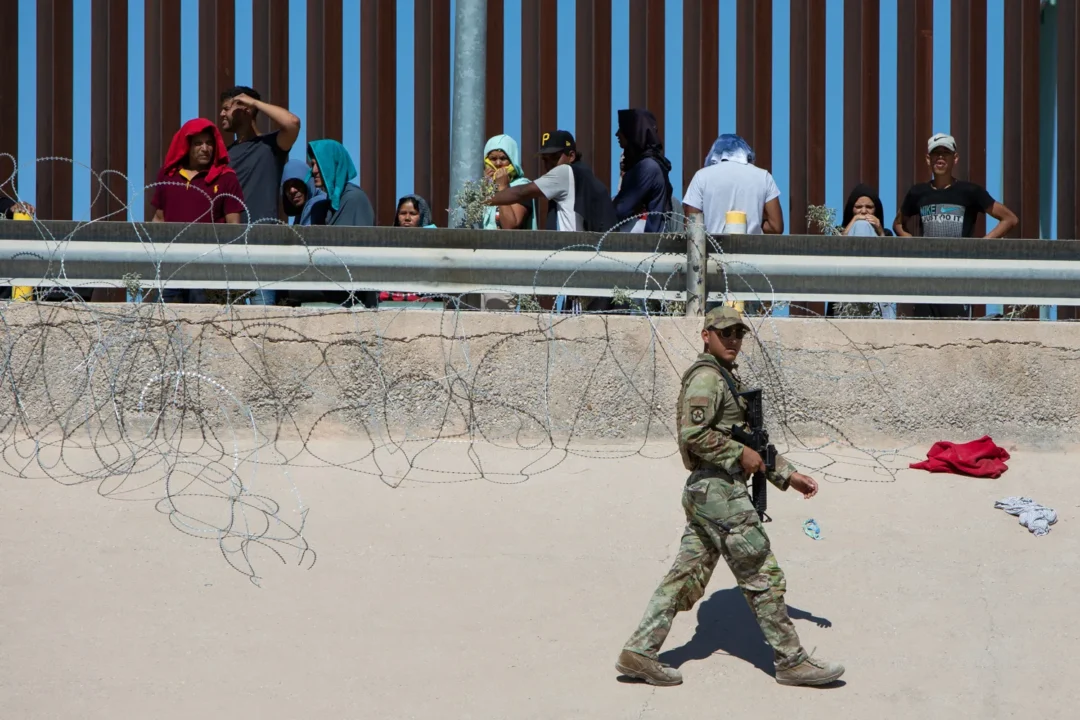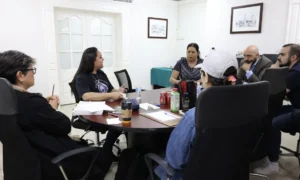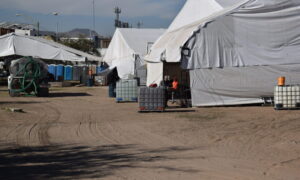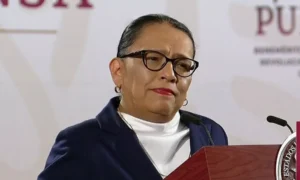By Verónica Martínez / La Verdad
Read this story in Spanish here
Ciudad Juárez– A large number of migrants crossed the Rio Grande into El Paso on Monday, with men, women and children waiting at the border wall to turn themselves in to U.S. Border Patrol agents and request asylum.
For the past few days, migrants from Venezuela, Brazil, Guatemala and Honduras have been arriving in Ciudad Juárez in large groups – the vast majority by train – with the intent of crossing into the United States, putting authorities and organizations who serve them on high alert.
Authorities from the Public Security Secretariat of Chihuahua estimate that nearly 1,000 people arrived by train in Juárez on Sunday afternoon; with that figure based the agency’s monitoring at Precos, the military checkpoint in Samalayuca about 26 miles south of the border.
“This greatly complicates the situation in terms of public safety,” the agency’s secretary Gilberto Loya said in a press conference in Parral on Monday. “Migration has become a business issue for the cartels operating throughout the state, which is generating around $100 million a month, according to conservative figures.”

The mass arrival of migrants through Juárez has also impacted El Paso, where Border Patrol reported that a group of about 500 migrants – single adult men and families from Venezuela – were encountered Monday morning at the border wall near Gate 42 off the César Chávez Border Highway and Yarbrough Drive.
Calling out for water, migrants by the border wall used shirts, cardboard and blankets to create shade for themselves as temperatures reached 87 degrees.
“We have been here without water since last night,” one Venezuelan man who was with a 4-year-old girl said Monday. He arrived in Juárez on Friday and camped out along the river on Sunday. “I have money but the cartel will not let us leave. My brother tried to leave earlier this morning to get water, but they beat him and told him he cannot leave.”
The man and other migrants alleged that members of the cartel were pushing them out of Juárez and across the Rio Grande.
A few miles west, other large groups of people waited under blankets hung over the concertina wire installed at the bank of the river by the Texas National Guard. Scattered groups of people walked along the river from both east and west, looking for a place to cross around the wire.
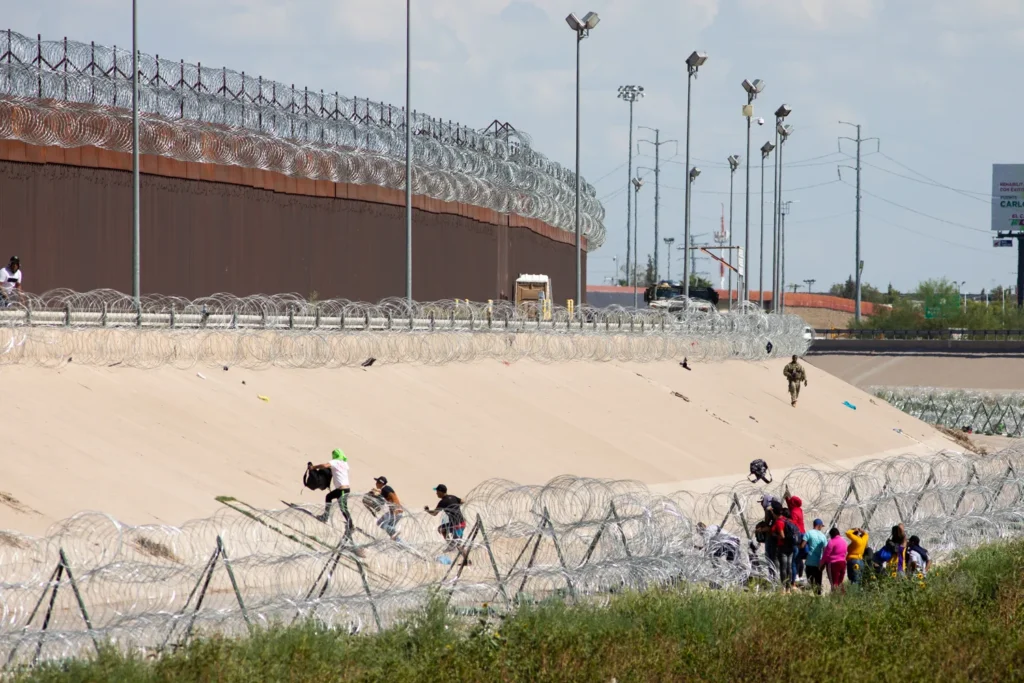
One migrant said cartel members threw rocks in the direction of the National Guard troops and shouted things like, “Take them, we don’t want them here,” referring to the migrants.
On Monday, about 4,600 migrants were in Border Patrol custody in El Paso, the city’s migrant dashboard shows. The agency released nearly 860 migrants to area shelters and city and county facilities, according to the dashboard.
The city of El Paso was sheltering more than 900 migrants in hotels on Monday, and was setting up an emergency overflow shelter at Nations Tobin Recreation Center.
In Juárez, mass groups of migrants have congregated in the downtown area and in some sections of Juan Pablo II Boulevard, parallel to the banks of the Rio Grande. Many of them spend the night in shelters, others on public roads.
Unlike El Paso, Juárez migrant shelters have not yet reached capacity: Figures from the office of the International Organization for Migration show shelters have room for nearly 3,000 people and are at 77% capacity. This capacity has fluctuated since August, ranging from 73% to 82%.
Despite the increase in the flow of foreign arrivals, religious and civil society organizations have reported a decrease in demand for humanitarian services.
Cristina Coronado, coordinator of the Human Mobility Office, commented that the number of people arriving at the dining room located in the Lady of Guadalupe Cathedral has not exceeded 500 people daily.
“For the number of people in the city, and those that we know are arriving, this number is low,” said Coronado, adding that on other occasions up to 900 people have been served at the church.
Coronado believes that’s because migrants don’t intend to stay in Juárez and are going directly to the border to surrender to border agents and request asylum.
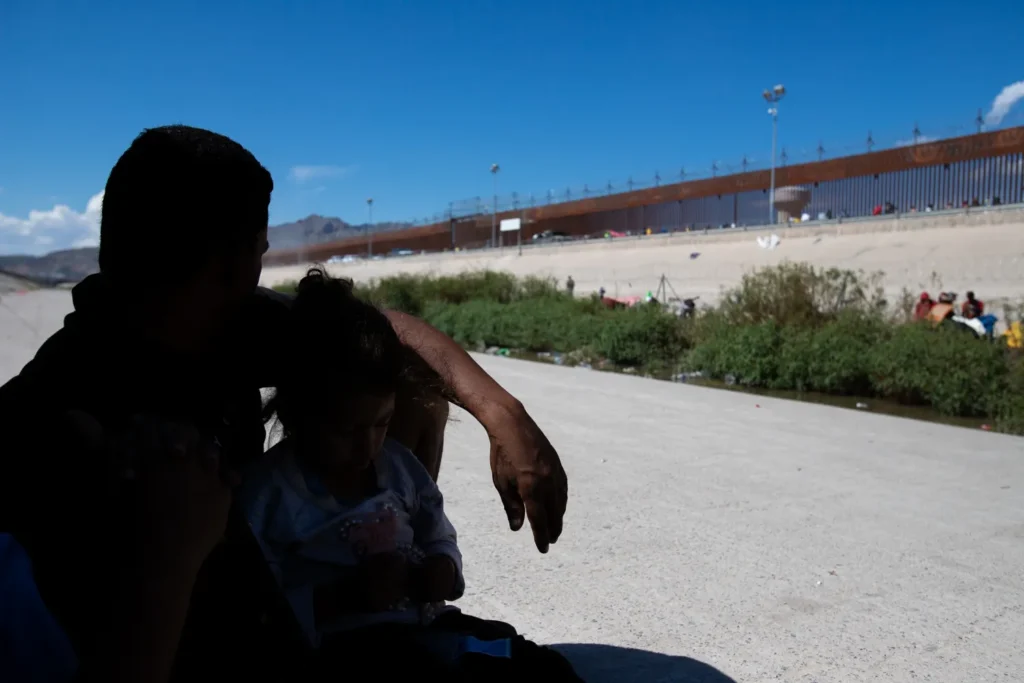
Edwin, a 35-year-old Venezuelan, has been at this border for two weeks and has spent the last few nights in the Plaza del Monumento Benito Juárez. He goes to the Cathedral to receive a daily meal.
Despite hearing rumors that some people have managed to cross into El Paso by turning themselves in to Border Patrol agents, he said he’s fearful of being returned to his home country if he does so.
“Yesterday, I went to look at the gates,” he said. “The entire border has barbed wire. The group I was with made it as far as Gate 40 but finally we returned when we saw no way to cross.”
Officials with U.S. Customs and Border Protection said that Title 8 continues in force. The immigration policy allows for people to be deported to their country of origin if they are not deemed admissible under the U.S. asylum law.
Overflow of Hundreds of Migrants in El Paso, International Commercial Traffic is Restricted
El Paso Matters assistant editor Cindy Ramirez and photographer Corrie Boudreaux contributed to this report.


